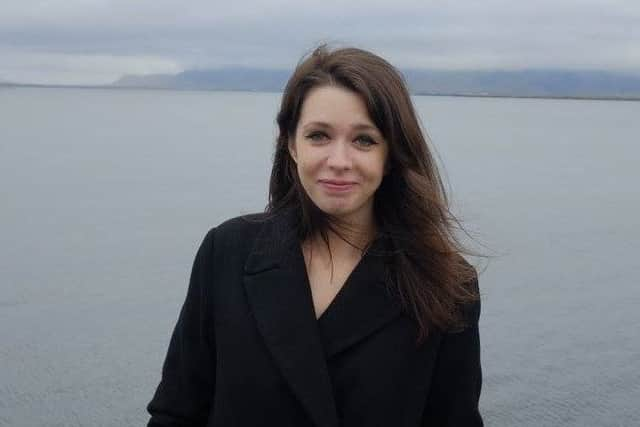Jen Gracie: We need to talk more about suicide '“ don't be silenced by stigma or shame
This article contains affiliate links. We may earn a small commission on items purchased through this article, but that does not affect our editorial judgement.


Of course, we still have a long way to go, but I’m also heartened by how far we’ve come in relation to mental health. Yet, when it comes to suicide, it feels more like we’re back with our own equivalent of ‘the big C’. It’s the issue that many of us are far more comfortable just avoiding.
Yet the impact is huge. In the last three years on average across the UK, more people under 29 died by suicide than from all forms of cancer added together. In Scotland in 2016, 728 people took their own lives and it’s estimated that around six people are directly affected by each death.
Advertisement
Hide AdAdvertisement
Hide AdThat means many thousands of us in Scotland have direct experience of this – yet you wouldn’t know it. There’s still a perception that suicide is something that a few of us will have to confront. That’s not the case.


This became even clearer to me during a series of events we recently held across Scotland, from Dumfries to Inverurie, along with colleagues at NHS Health Scotland and the Health and Social Care Academy. Aimed at informing the Scottish Government’s new action plan on suicide prevention, we heard the views of those who have had suicidal thoughts, attempted suicide, or supported or lost someone to suicide. And we heard clearly and passionately what needs to be done differently to help and support people affected.
While experiences of support differ, what is clear is that the stigma attached to suicide is crushing. Whether losing someone to suicide or feeling suicidal yourself, it’s complex, overwhelming and ultimately too often leaves us feeling more alone.
I heard from more than one person who, having lost a loved one to suicide, had to then cope with people crossing the road to avoid having to talk to them. In one of the most devastating times of their lives, people are left feeling more isolated because we simply don’t know what to say.
While that can be shattering for someone who is trying to cope with losing someone by suicide, I don’t believe there’s malice in it. The reason we can’t find the right words is because the myths about suicide are still pervasive.


Suicide is still seen as something that’s not preventable, or something that’s selfish or shameful. That doesn’t just mean that the stigma harms those left behind – it also harms our efforts to reduce and prevent suicide. If someone is ashamed to admit that they feel suicidal, why would they open up and seek help?
If people believe that suicide is not preventable, why would they push government to commit funds to addressing it? This stigma means that it is all the harder to reduce the number of people taking their own lives – and that the impact for those left behind is all the more traumatic.
We can’t continue to avoid the issue and now is the right time to bring about change. To influence that change, the voices of those people I met and many like them are the most powerful means we have. We can show that suicidal feelings do happen, that recovery does happen – and that more of us have dealt with, are dealing with, this terrible grief than we think. Fundamentally, we need to amplify the voices of those who feel this the most.
Advertisement
Hide AdAdvertisement
Hide AdThis report is a step in the right direction – but it is just that. If we are committed to tackling stigma and reducing suicide, then people who have the most experience have a central role to play.
So, as well as demanding action on the report’s other recommendations, we’ll be asking that the Scottish Government commits to involving those with experience of suicide in policy development on an ongoing basis. Not simply during the consultation for the suicide prevention action plan, but when we’re implementing new measures and making sure change is really happening over the next ten years.
It’s then that I really hope to be able to write a piece about the baffling stigma that used to be attached to suicide prevention. You can read the report from the suicide prevention events here: https://www.samaritans.org/sites/default/files/kcfinder/files/SPR%20final%20WEB.pdfJen Gracie is policy and communications officer, Samaritans Scotland.